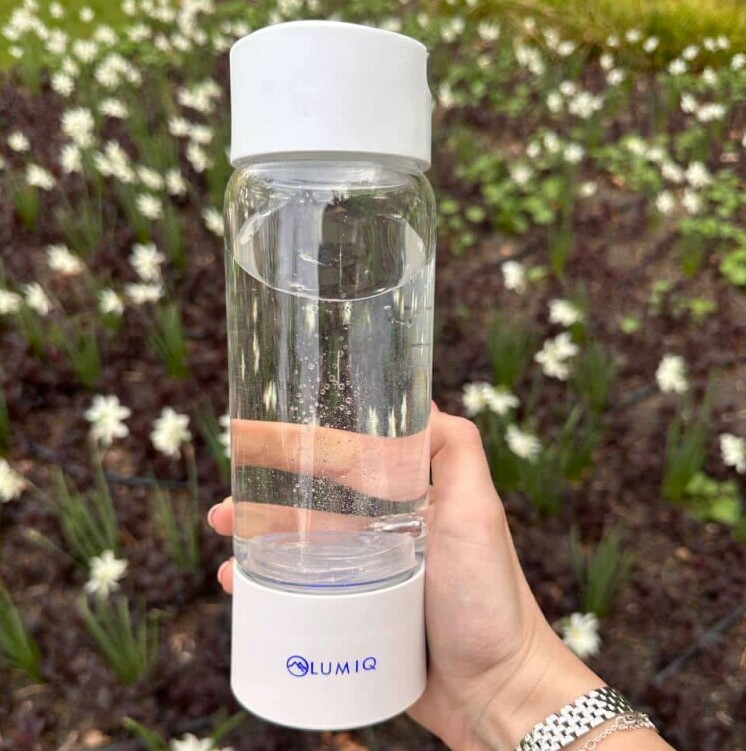 If you’re a new mother, or expecting to become one, you’ve probably realized that the postpartum period can be just as challenging as it is joyful. It’s a time when you’re adjusting not only to the demands of motherhood but also to the many changes in your own body and mind. Nurturing your overall well-being is essential.
If you’re a new mother, or expecting to become one, you’ve probably realized that the postpartum period can be just as challenging as it is joyful. It’s a time when you’re adjusting not only to the demands of motherhood but also to the many changes in your own body and mind. Nurturing your overall well-being is essential.
Holistic nurturing for new mothers means adopting an approach that targets physical health, emotional balance, and nutritional needs. Realizing that you’re going through a profound transition and taking care of yourself shouldn’t play second fiddle to the needs of your baby. In fact, by prioritizing your recovery, you’re setting up a more stable, nurturing environment for your little one.
A naturopathic doctor (ND) can be instrumental in this journey. NDs focus on creating a personalized plan—taking into account your unique circumstances, preferences, and health goals. Working alongside other healthcare providers, they complement the recovery process by filling in the gaps often left in standard postpartum care.
In my opinion, this integration of naturopathic care into the recovery landscape offers a bridge between conventional medical support, and the often overlooked aspects of a new mom’s well-being, such as energy levels and emotional resilience. As we talk about nutritional therapy, remember that nurturing yourself physically is a cornerstone of postpartum recovery and plays a significant role in supporting you and your baby.
The Cornerstone of Recovery: Nutritional Therapy
Proper nutrition isn’t just one piece of the postpartum wellness puzzle, it’s the cornerstone that supports a mother’s entire recovery process. After childbirth, a woman’s body undergoes a tremendous amount of change. Not only is there physical healing to consider, but hormonal shifts and the demands of breastfeeding, if you choose that route, require a boatload of essential nutrients.
Let’s learn together why personalized dietary advice from a naturopathic doctor (ND) is so beneficial. For starters, NDs understand the unique nutritional needs during this period. They can help new moms optimize their hormonal balance, which is critical for emotional health and can even affect milk production for breastfeeding mothers.
Let’s talk about the specifics. New mothers should focus on foods rich in vitamins, minerals, and essential fatty acids, which are the building blocks that help repair tissues, regulate mood, and combat fatigue. Imagine leaning on a diet packed with colorful fruits and vegetables, whole grains, lean proteins, and healthy fats. This isn’t just good advice for anyone, it’s crucial for a new mother’s vitality.
Here’s another tip: hydration is key. It’s often overlooked but drinking enough water can enhance physical recovery and milk production. Think of it as oiling the gears of your body, everything runs smoother with adequate hydration.
And remember, while nutrition is universally important, every mother’s experience and needs are unique. It’s not about following a one-size-fits-all diet. That’s why consulting with an ND to create a personalized plan is a game-changer. They can recommend the right mix of foods and supplements tailored just for you while taking into account any dietary restrictions or preferences you might have.
What you eat during the postpartum period can impact your overall well-being. By emphasizing nutrition as therapy, new moms can pave the way for a stronger, healthier start to motherhood.
Harnessing the Power of Herbal Medicine

Herbal remedies have supported women’s health for centuries, and hold a special place in postpartum care. Herbs can be powerful allies for new mothers, addressing everything from lactation to relaxation. Nature offers a wealth of support that enhances your healing journey.
You might have heard of fenugreek and blessed thistle. They are just a couple of herbs reputed to promote lactation and help with milk production. They can be beneficial for mothers who are breastfeeding and seeking to boost their supply. That being said, I’d strongly recommend consulting a healthcare provider before trying these or any new supplements.
Relaxation is just as important as nutrition in the postpartum period. Herbs like chamomile and lavender are famous for their soothing properties. A warm cup of chamomile tea can do wonders for your nerves, and lavender oils or adding them to toxin-free lotions can be a part of a calming bedtime ritual. Again, it’s essential to source these herbs or oils from reputable suppliers and to use them as directed.
When incorporating herbal remedies, it’s advised to take into account your health history, needs, and preferences to come up with a herbal regimen that’s both safe and effective. You want substances that aid your recovery without causing any adverse effects.
Here’s the thing: the efficacy of herbal medicine depends greatly on how it’s used. Choose something that resonates with you and you’re more likely to stick with it if it feels right. And remember, these remedies are meant to complement, not replace, the advice and treatments from your healthcare providers.
Regaining Strength and Serenity Through Physical Therapies
Physical therapies serve as powerful allies in postpartum recovery. Naturopathy, in particular, offers a range of options that can alleviate discomfort and rebalance the body’s systems. So, what’s on the menu of therapies available to new mothers?
 Acupuncture is a standout technique with roots in traditional Chinese medicine. It’s renowned for its ability to balance hormones and has been shown to offer relief from postpartum depression and anxiety. Fine needles, strategically placed, help stimulate the body’s natural healing mechanisms.
Acupuncture is a standout technique with roots in traditional Chinese medicine. It’s renowned for its ability to balance hormones and has been shown to offer relief from postpartum depression and anxiety. Fine needles, strategically placed, help stimulate the body’s natural healing mechanisms.
 Massage therapy is another method I’d highlight. Not only does it help new moms relax and soothe tired muscles, but it also improves circulation, which is essential in healing. Here’s something you’ll value: the power of a therapeutic touch cannot be underestimated, especially when navigating the often overwhelming postpartum period.
Massage therapy is another method I’d highlight. Not only does it help new moms relax and soothe tired muscles, but it also improves circulation, which is essential in healing. Here’s something you’ll value: the power of a therapeutic touch cannot be underestimated, especially when navigating the often overwhelming postpartum period.
 Have you ever considered the benefits of water? Hydrotherapy employs the therapeutic properties of water to enhance healing and relaxation. It might involve anything from warm baths to specific water exercises to ease the body back into tranquility and wellness. Speaking of water, the benefits of hydrogen water for pregnant women will help to maintain a suitable oxidation level for good health. It has no contraindications and helps to:
Have you ever considered the benefits of water? Hydrotherapy employs the therapeutic properties of water to enhance healing and relaxation. It might involve anything from warm baths to specific water exercises to ease the body back into tranquility and wellness. Speaking of water, the benefits of hydrogen water for pregnant women will help to maintain a suitable oxidation level for good health. It has no contraindications and helps to:
- Boost Energy Levels & Reduce Fatigue
- Promote Clear Skin & Strong Joints
- Support Healthy Weight Loss & Hydrate Faster
- Enhance Gut Health & Reduce Inflammation
While these therapies are beneficial, always remember the golden rule: it’s essential to consult with a healthcare provider before starting any new treatment regimen. They’ll guide you in choosing what’s best for your unique situation, ensuring your safety, and setting you up for the best possible outcomes.
Cultivating Emotional Resilience and Physical Activity
Let’s take a glimpse into the less talked about side of motherhood: the quiet strength that comes from emotional resilience. It’s not just physical recovery that’s important; your emotional well-being is just as vital. In my opinion, naturopathic doctors understand this balance and work to enhance your mental health alongside your physical healing.
Stress management isn’t a luxury; it’s a necessity, especially for new mothers. Practices like meditation and yoga help manage stress and promote a sense of calmness and centering. It’s about creating moments of peace in the midst of one of life’s most beautiful—yet challenging—transitions.
Choose something that resonates with you when it comes to physical activity. Gentle exercise, like a postpartum yoga class or a leisurely walk, can assist your mood and energy levels. Remember, your first attempt doesn’t need to be your last; you can always adjust your approach as you become stronger and more comfortable.
I hope that you’ll incorporate these considerations into your postpartum care routine. Healing takes time, and please be kind to yourself as you navigate this new chapter. Embrace the full spectrum of holistic nurturing, as it is helpful for you and sets a powerful example for your little one about the importance of self-care and patience.
This post contains affiliate links. If you purchase through these links, I may earn a commission at no extra cost to you.
DDH
